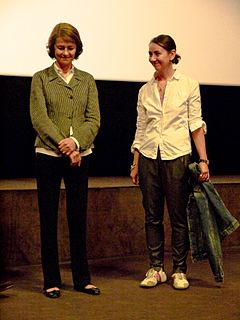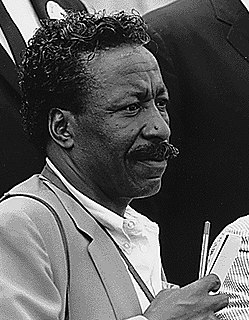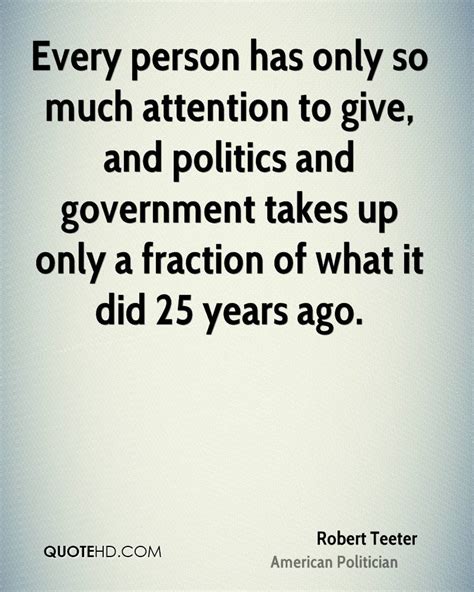A Quote by Dale Carnegie
The only way on Earth to influence other people is to talk about what they want and show them how to get it.
Related Quotes
Nowadays children look at everyone in the magazines and they want to be a basketball star or on a television show, but there is only so many people who can do those things and not that you shouldn't aim or dream for these things, but there are so many other fantastic jobs. So it's good to talk about how to get there and how difficult it is to get there.
You can talk about things indirectly, but if you want to talk how people really talk, you have to talk R-rated. I mean I've got three incredibly intelligent daughters, but when you get mad, you get mad and you talk like people talk. When a normal 17-year-old girl storms out of the house or 15-year-old boy is mad at his mom or dad, they're not talking the way people talk on TV. Unless it's cable.
I think that to me, films are personal affairs. It doesn't mean that I am against other people doing things differently, but I'm talking about what I can do. So I don't feel comfortable going to a new city or a certain class of which I don't have sufficient knowledge, doing research on that, and then writing a story about it I don't think I have the ability of presenting other people on screen in that way. It makes me uncomfortable. This doesn't mean that I only want to talk about myself. I want to talk about what I know.
My humour comes from acknowledging different communities. That's what my fans are responding to - they know that I 'get it.' I understand them. I take the time to understand them. I get more complaints from people when I don't talk about them. I've had guys come up to me after a show and go, 'You didn't talk about Latvians!'
When people use the word hell, what do they mean? They mean a place, an event, a situation absent of how God desires things to be. Famine, debt, oppression, loneliness, despair, death, slaughter--they are all hell on earth. Jesus' desire for his followers is that they live in such a way that they bring heaven to earth. What's disturbing is when people talk more about hell after this life than they do about Hell here and now. As a Christian, I want to do what I can to resist hell coming to earth.
I talk with countries, whether it's the Arab states or in the Middle East, and they talk about how they're glad to see us fighting against Iran. I talk with different countries in reference to Syria, and we talk about how we can get the Iranian influence out. We're talking about North Korea and what we need to do and the pressure we need to put on China. They're happy that we're finally beating up on Russia for what they've done in the Ukraine.
I have been so blessed not only to talk about things that I want to talk about in my industry, but also to have a platform - and people want to hear about it. People want the change; people want the difference; people want to know what's going on. People want to see themselves in the industry that for so long has ostracized girls of my size.
There are little Indian girls out there who look up to me, and I never want to belittle the honor of being an inspiration to them. But while I’m talking about why I’m so different, white male show runners get to talk about their art. I always get asked, ‘Where do you get your confidence?’ I think people are well meaning, but it’s pretty insulting. Because what it means to me is, ‘You, Mindy Kaling, have all the trappings of a very marginalized person. You’re not skinny, you’re not white, you’re a woman. Why on earth would you feel like you’re worth anything?’





































